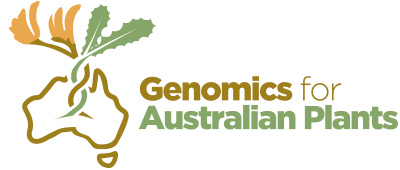Nov 2019 Updates – Bioinformatics and training activities
Prepared by Anna Syme
1. Bioinformatics – Reference Genome Working Group
1. Working Group established for Reference Genomes to plan approach, tasks, responsibilities, timelines, and expected outputs.
2. A priority this year has been on identifying and comparing suitable tools (and combinations) for sequence data processing and genome assembly.
3. DNA extraction has emerged as a challenging yet key step for downstream sequencingquality. First three genomes progressing well, with some delays due to extraction difficulties.
4. Relevant assembly tools and methods tested; liaison with Australian BioCommons for compute requirements; assembly workflow developed and test runs in progress on national HPC (NCI).
5. The Working Group is also liaising with sequencing providers to identify current and future sequencing approaches to best capture challenging repetitive regions of plant genomes.
2. Bioinformatics – Phylogenomics Working Group
Working Group established for the bioinformatics component of the Phylogenomics project.
1. Liaison with Kew Gardens (UK) phylogenomics project (PAFTOL) to align and share approaches; data will be shared across GAP and PAFTOL which will be mutually beneficial.
2. The working group has investigated approaches to contig assembly from bait capture and identified appropriate existing tools such as Hybpiper.
3. These tools will need some modifying to best suit our requirements for contig assembly standardisation and paralog detection: this is in progress.
3. Bioinformatics – Training Working Group
Working Group established to develop the GAP bioinformatics training for the Australian plant research community.
1. Australian plant research community surveyed to assess training needs and priorities; together with discussion with the Steering Committee, these responses now inform training scope.
2. Liaison with Galaxy Australia (bioinformatics platform) to expand plant-specific tools and test feasibility of large genome assembly on the platform; ten new tools requested to date.
3. Liaison with international GTN to expand plant-specific training materials: assembly tutorial 50% complete.
4. Liaison with the Australian BioCommons to align resources in genomic assembly, annotation, phylogenomics across various national Bioplatforms projects.
5. Workshops and webinars in planning for 2020 and onwards; adjacent to relevant conferences as per survey responses.
6. A website for Australian plant bioinformatics training resources in draft; first release planned Dec 2019.
